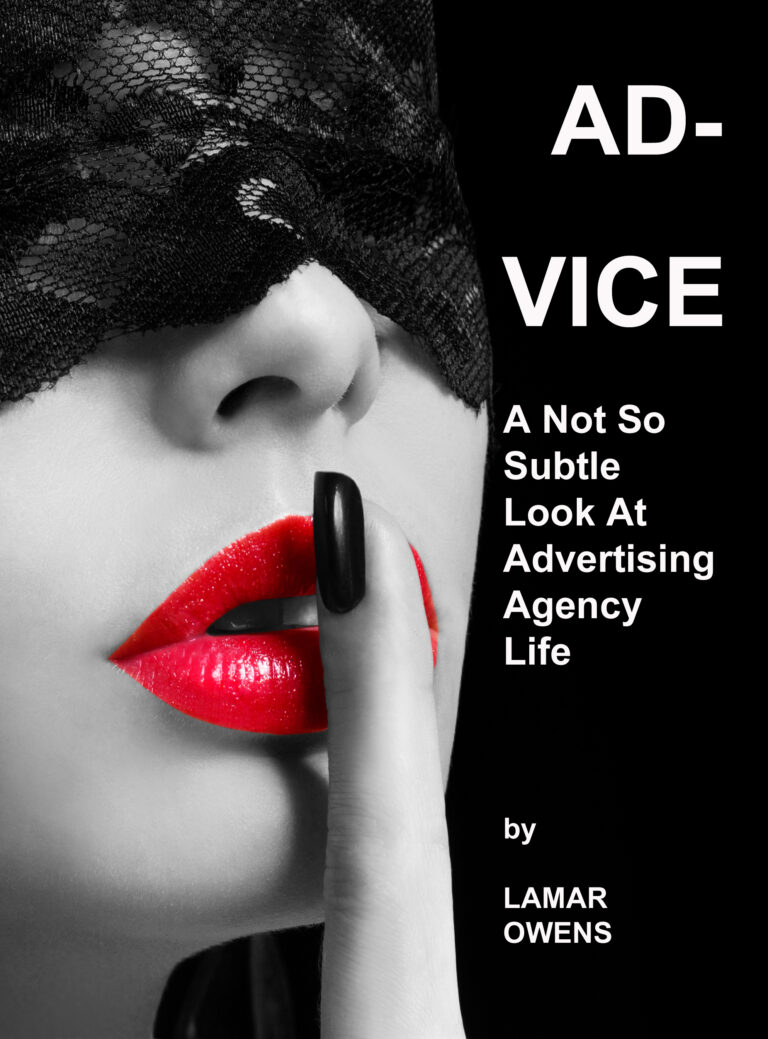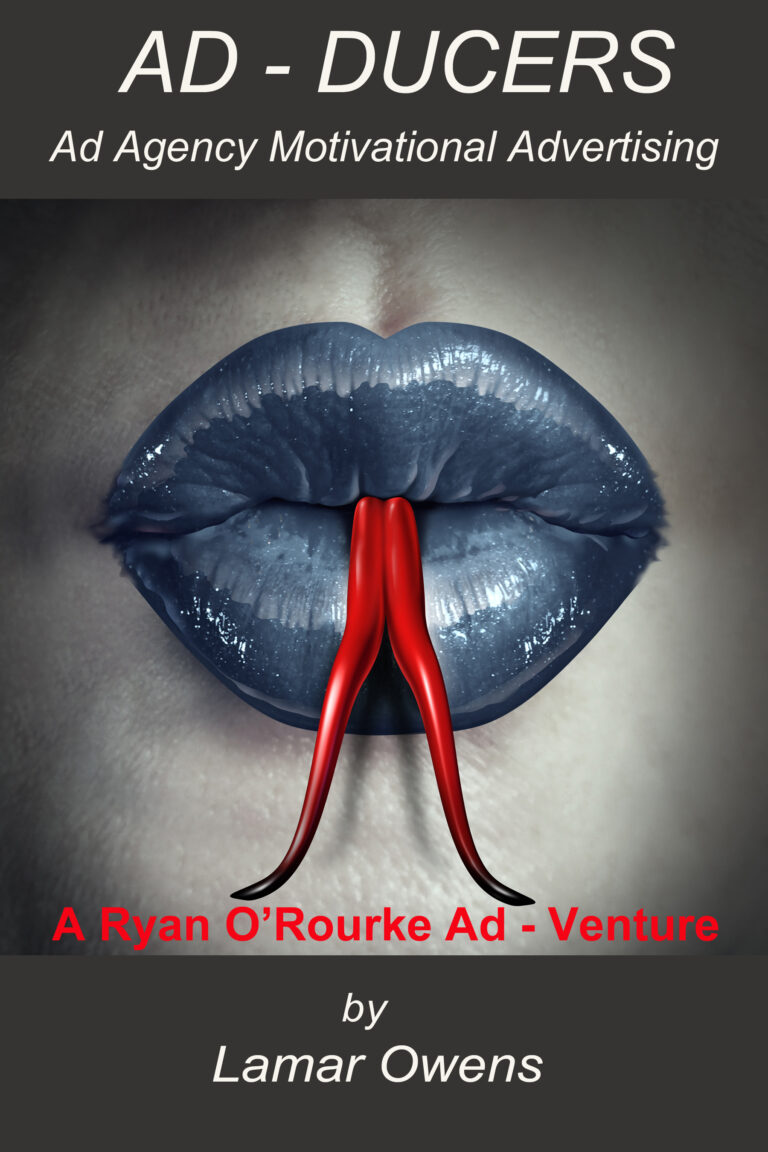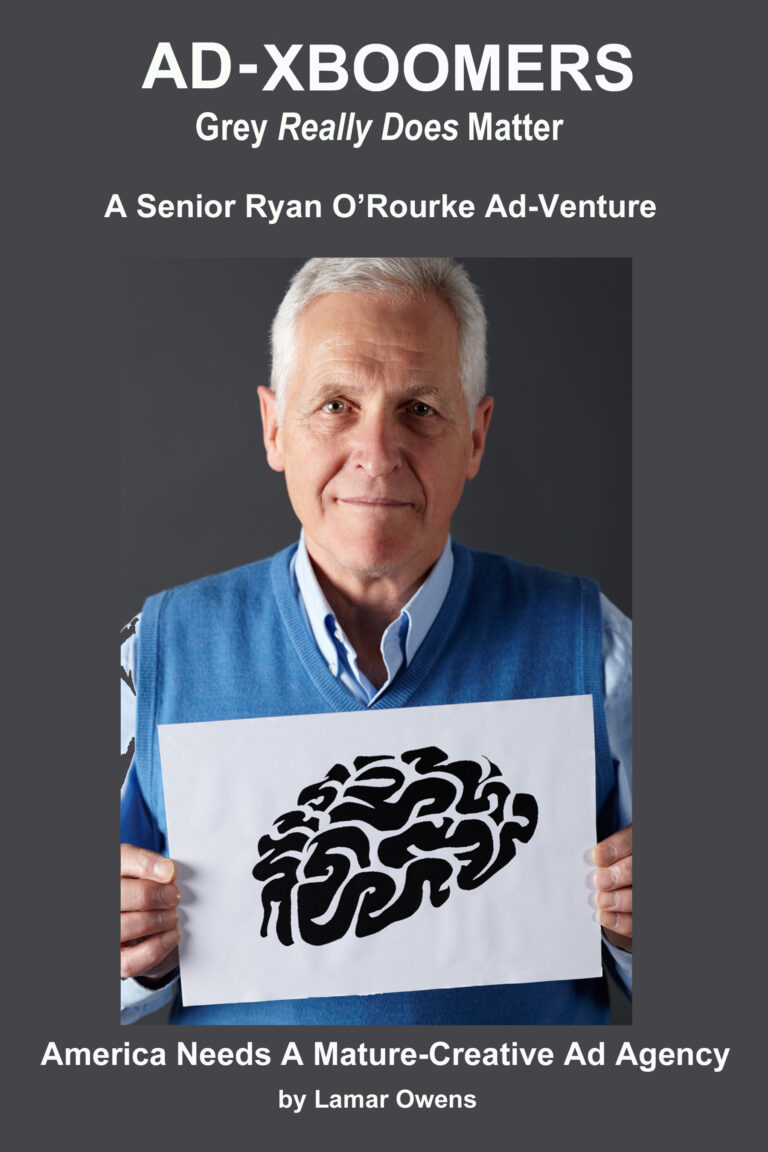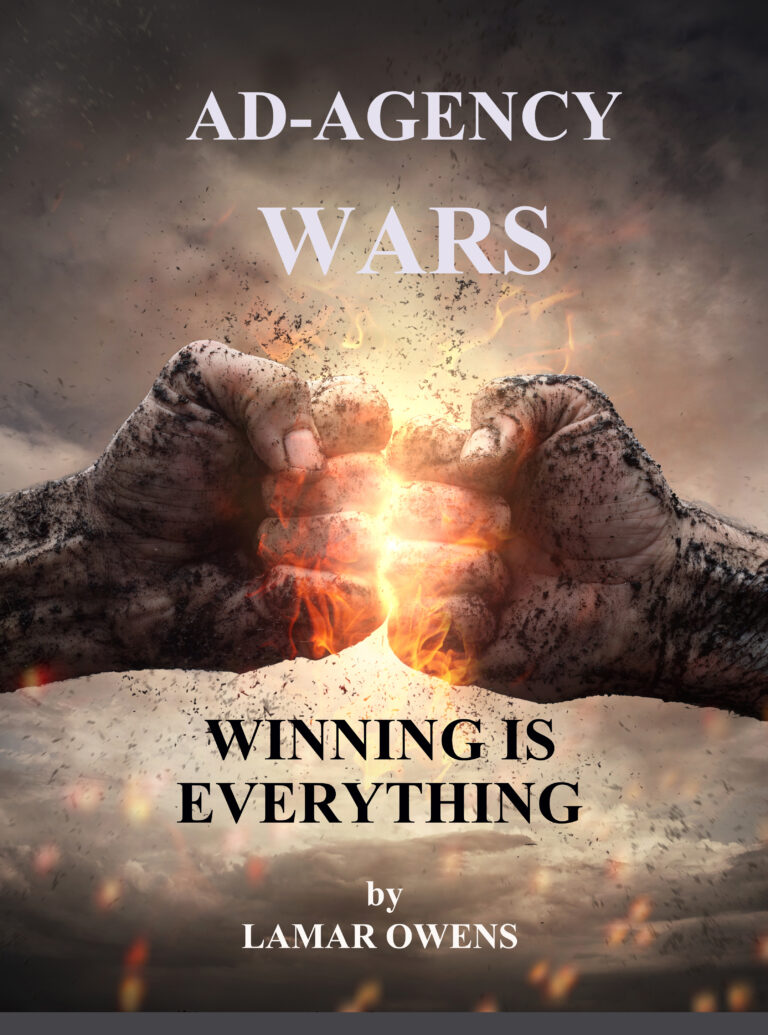AD- VICE
Beau Lee Horton was known in the south as Bo Lee and everywhere else as just Bo. Since he was old enough to press the buttons on the TV remote Bo had been fascinated by advertising commercials. He graduated from Arizona State University with a degree in marketing and a minor in psychology and got a job in a Phoenix ad agency. He worked in various agency departments until 2005 when he was able to land a job with Goodby, Silverstein & Partners in San Francisco. Bo fit right in with the agency’s contrarian creative attitude.
AD – VICE is It’s full of intrigue, excitement, intimacy, ambition, involvement, greed and general ribaldry. Advertising has certainly changed due to the digital world, but the ad agency is still a boiling pot of emotions. Life in an advertising agency is a rollercoaster of elation and depression with a modicum of fun along the way.
Hopefully you’ll enjoy reading about the vices of the advertising agency business.
Will Rogers summed up pretty well what ad agency people do:
“Advertising is the art of convincing people to spend money they don’t have for something they don’t need.”
AD - DUCERS
Ryan O’Rourke was on his third glass of Glenfiddich and told himself to slow down. He would hate to stumble and fall down drunk while receiving his first CLIO award. After all it was the world’s most recognized advertising award. It always frosted him that the agency creative directors or principals accepted the awards on behalf of the sweat hog creative writers, designers and producers who actually did the creative work.
It had been a weird and winding road that brought him to this point. His college friend Matt Bianchi’s family knew the Spielbergs while in Arizona. Matt & Ryan attended USC and dreamed of a future in Hollywood.
During their junior year Matt told Ryan that Spielberg had been given a long term directing contract at Universal and he was planning on working with him at his company Amblin Entertainment.
Ryan’s real education started after USC when Matt introduced him to Amblin. The first person Ryan met was the CEO Jeff Smart. He was a bean counter and a real prick. But Ryan smiled and did his ‘I’m so thrilled to be here’ routine. Smart laughed in Ryan’s face.
AD - XBOOMERS
Staring in the bathroom mirror Ryan decided he needed a change from growing grapes and making wine in the Sonoma Valley. He needed more of a creative challenge. He missed some of the ad agency thrill of creating campaigns, but not the agency and client politics. His consulting with Omnicom Group agencies helped but it was not enough.
Over the past few years Ryan noticed his consulting with Omnicom ad agencies was somewhat reduced. He attributed this to his severe difference of creative opinion with young agency hot shots on what was most important in advertising.
Most agency creative were either Millennials or Generation Zs – which meant they were born between 1981 and 2012. They were almost all high-tech and focused on how computer technology and special effects could enhance the creative message.
Ryan knew that Baby Boomers still controlled 53% of U.S. wealth and GenXers controlled 25%. More importantly both groups responded to how the message applied to them rather than technology special effects.
The difference between technology creative and message creative Ryan called the ‘Great Creative Chasm’. His adamant debating for creative messages applicable to the 78% of Americas wealth usually fell on deaf ears of the Millennial and Gen Z creative types.
He had gotten out of the ad agency business – other than consulting – many years back but was firmly convinced that what America needed was an Ad-XBoomer agency.
AD AGENCY WARS
The stories in this book are based loosely on
real experiences – and then fictionalized to protect both the innocent and
guilty. They cover a variety of situations between agency and client as well as
the perennial theft of clients between agencies.
The relationship between clients and
ad-agencies is tenuous at best. Often it seems more like servitude but
occasionally the two opposing sides work in harmony – until they don’t. Some of
my fondest memories are working with clients who truly understand the
importance of advertising and appreciate what an ad-agency contributes. The
other side of that coin is relationships where clients insist on telling the
agency what to do and how to do it.
Hopefully you’ll find these fictional accounts interesting and entertaining. They all are based on a kernel of truth. Anyone who has ever worked in the ad-agency business – whether at the local or national level – will recognize the loosely knit fabric between client and agency as well as the ‘live or die’ quest for new business.
A career in the advertising agency business might not be a wise choice for timid souls or those who seek a passive existence. But for those brave, egotistical spirits with a warrior’s attitude who seek excitement and daily chaos the ad-agency life is a great battlefield.



